Affiliate links on Android Authority may earn us a commission. Learn more.
Why doesn't anyone seem to take mobile gaming seriously?
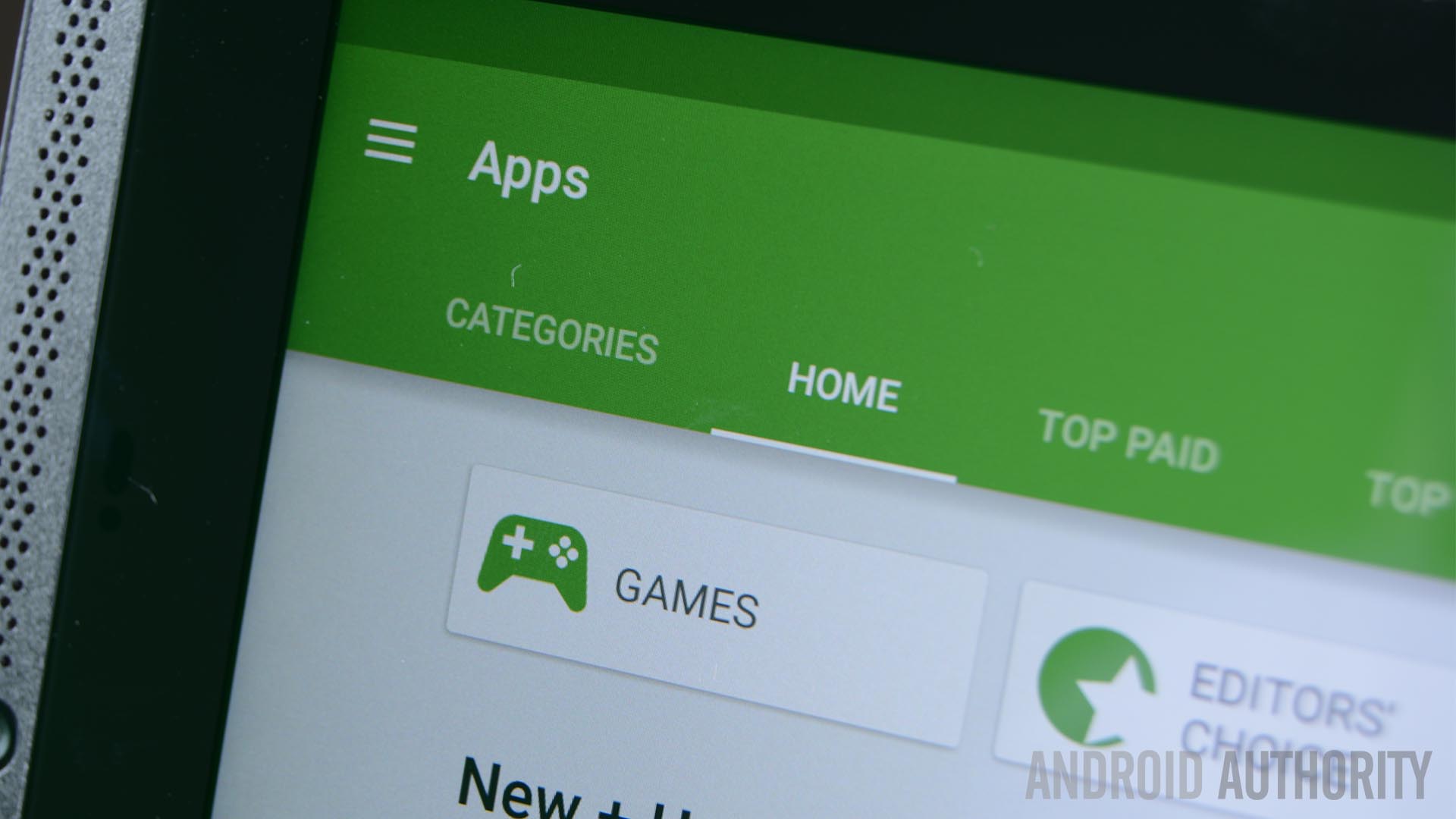
What’s going on, and what keeps blocking the path to what seems like a natural evolution in gaming? Let’s take a look at the possibilities.
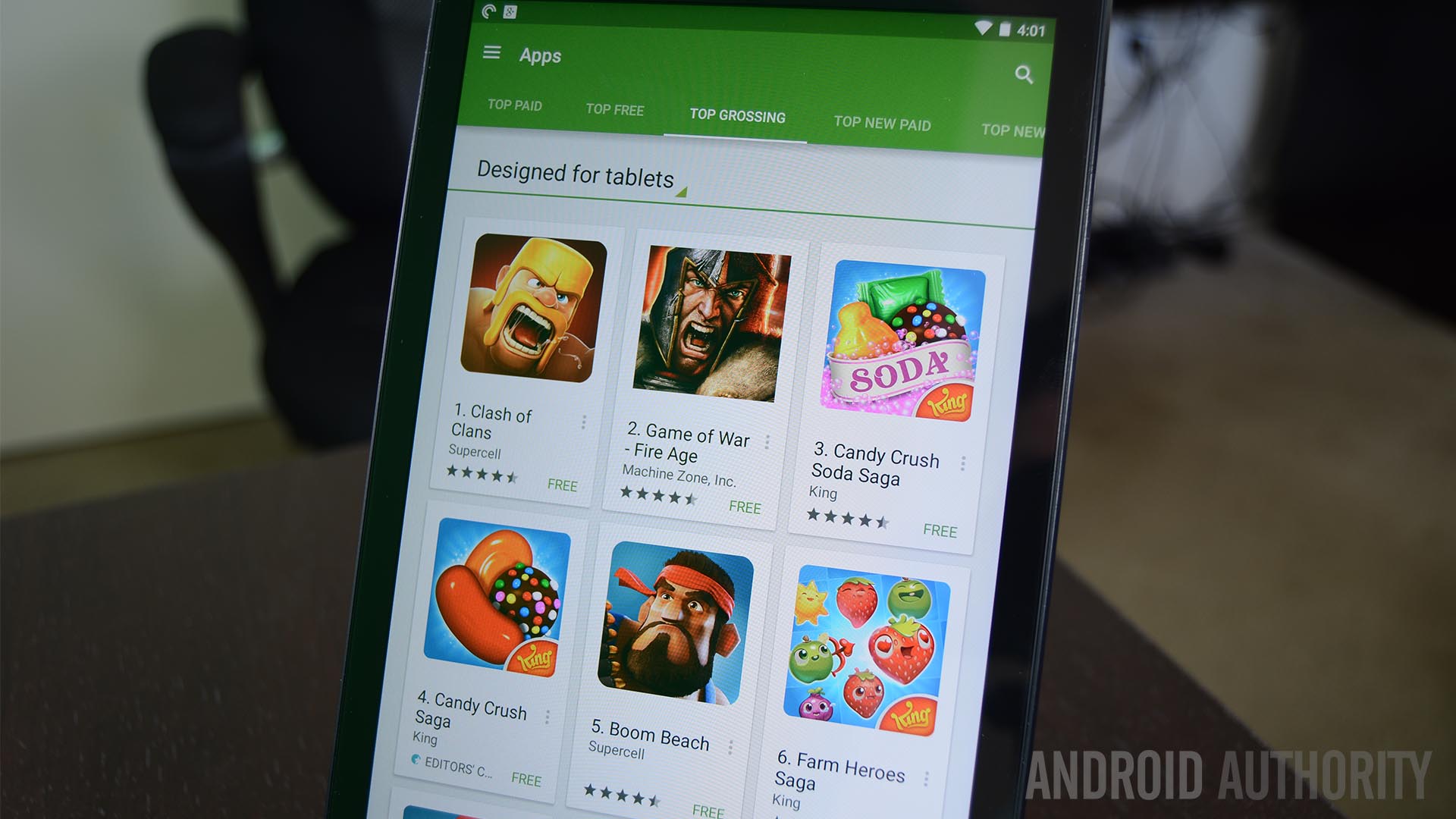
Money
Let’s get the elephant out of the room right now. The biggest worry for big name studios is whether or not they’re going to make money on mobile. Upon a cursory glance, it doesn’t appear that revenue is a problem. In 2014, Apple’s App Store recorded over $10 billion in sales with every indication that Android is catching up. This still falls short in comparison to the $46.5 billion in sales for the console and PC gaming industry, but there’s definitely money to be made.
The stats look juicy. Especially if you consider that everyone expects mobile to grow considerably while PC and console should slow down a bit. These stats all point to one thing: mobile is the future.
The stats all say the same thing. Mobile gaming is the future.
Unfortunately, when you peel back those numbers you begin to see some unsavory trends. Revenues are growing, but it’s how they’re growing that seems to be the problem. In 2014, Freemium games (free with in-app purchases) accounted for more than 95% of revenue in the Google Play Store with iOS not far behind. This means that people aren’t actually buying stuff. They’re downloading games and then maybe paying money later if they like it. It doesn’t help that well over 90% of new games and apps are Freemium which only bolsters the strength of that business model.
This is a problem because that’s not how games are traditionally made. Generally, there’s a larger up-front cost to playing a high-end console or PC game. Do they have in-app purchases? Of course they do, but they’re generally things like expansion packs which adds a ton of extra content to the game. You can’t buy gems in Halo and you don’t buy gold in Skyrim.
When you add it all up, it means that in order to make money on mobile, you have to compromise your game in order to make it fit with the business model that works there. Freemium titles are huge on mobile while more expensive, pay-once titles account for a few percentage points at best.
When you're a business, it means more when people vote with their wallets, not their words.
That leaves developers with two options. The first is that they abandon the effort and stick to console and PC where their kind of business model pays big. The other is that they bastardize their IP by creating masturbatory, fan-service games like Mortal Kombat X on mobile, Sonic Dash, and to a smaller extent Fallout Shelter that take legendary franchises and neuters them into something that fits into the more profitable business model. To really drive the point home, Sonic Dash has between 50 million and 100 million downloads. The actual Sonic the Hedgehog games (full ports of Sonic 1 and Sonic 2) have a combined total of between 200,000 and one million, making them anywhere between 0.2% to 2% as popular as their freemium counterpart.
The sad truth is that when you’re a business, it means more when people vote with their wallets and not their words. The ones spending money are doing it on Freemium games and not pay-once games. No amount of logic or reasoning is going to change that. People simply aren’t buying games on mobile. They’re paying for in-game content from titles they got for free. That is just the way it is. At least for right now.

Piracy
Unfortunately, there are no widespread studies done on just how bad piracy is on mobile. There simply aren’t any stats to confirm or deny that it’s that big of a problem. That means there must be no problem, right? Well, much like we discussed with revenue above, once you look under the veil and get a little deeper, you begin to see that it’s not as it seems.
Piracy is, in fact, a rather bothersome problem on mobile and developers have been complaining about it for a long time. Madfinger Games, developers of the hit shooter Dead Trigger, went on record back in 2012 to confirm that Dead Trigger and Dead Trigger 2 went Freemium due to overwhelming amounts of piracy. The game is now far more profitable even if the decision left a bad taste in the mouths of some people.
The indie game Gentlemen! was paid for 144 times and pirated 50,000 times back in 2013.
These complaints can be found everywhere. Earlier this year, ustwo, developers of the hit game Monument Valley, announced that only 5% of Android installs were paid for. The indie game Gentlemen! was paid for 144 times and pirated 50,000 times back in 2013. Jack Underwood spent much of early 2015 lamenting the 85% piracy rate of his app called Today Calendar. In August of 2015, Noodlecake Studios reported that their Shooting Stars game had an 89% piracy rate. The reports are all there, buried under the misguided belief that nothing is actually wrong.
It gets worse. People are not the only entities trying to steal games. After Flappy Bird made it huge in 2014, thousands of developers made clones to try to cash in on the success story. You can find clones for all of the big hit games that offer small variances but keep the overall aesthetic and mechanics. In some cases, the clone becomes more popular than the original. A notable example is the game Fives, which is a variant of the game Threes!. For a long time, Fives was the more popular game despite being a replica.
Amazon walked away with over $50,000 in free downloads.
How much lower can it get? Well, if people and other developers aren’t trying to snatch up your idea, sometimes the app stores themselves will. Back in 2011, Shifty Jelly, developers of the intensely good podcast app Pocket Casts, decided to take part in the Amazon Free App of the Day. The idea was their app is given away for free and they’re reimbursed for the revenue. Unfortunately, that didn’t happen and the developers were hung out to dry while Amazon walked away with over $50,000 in free app downloads. These instances don’t happen very often, but it still sucks when it happens.
When you add it all up, you start getting the idea that if someone wants your game for free, they’re going to get it one way or another. Either a competitor will release something like it for cheaper or piracy will rear its ugly head and compromise the revenue stream. It is possible to make games that are profitable on mobile, but only if you do it just right.
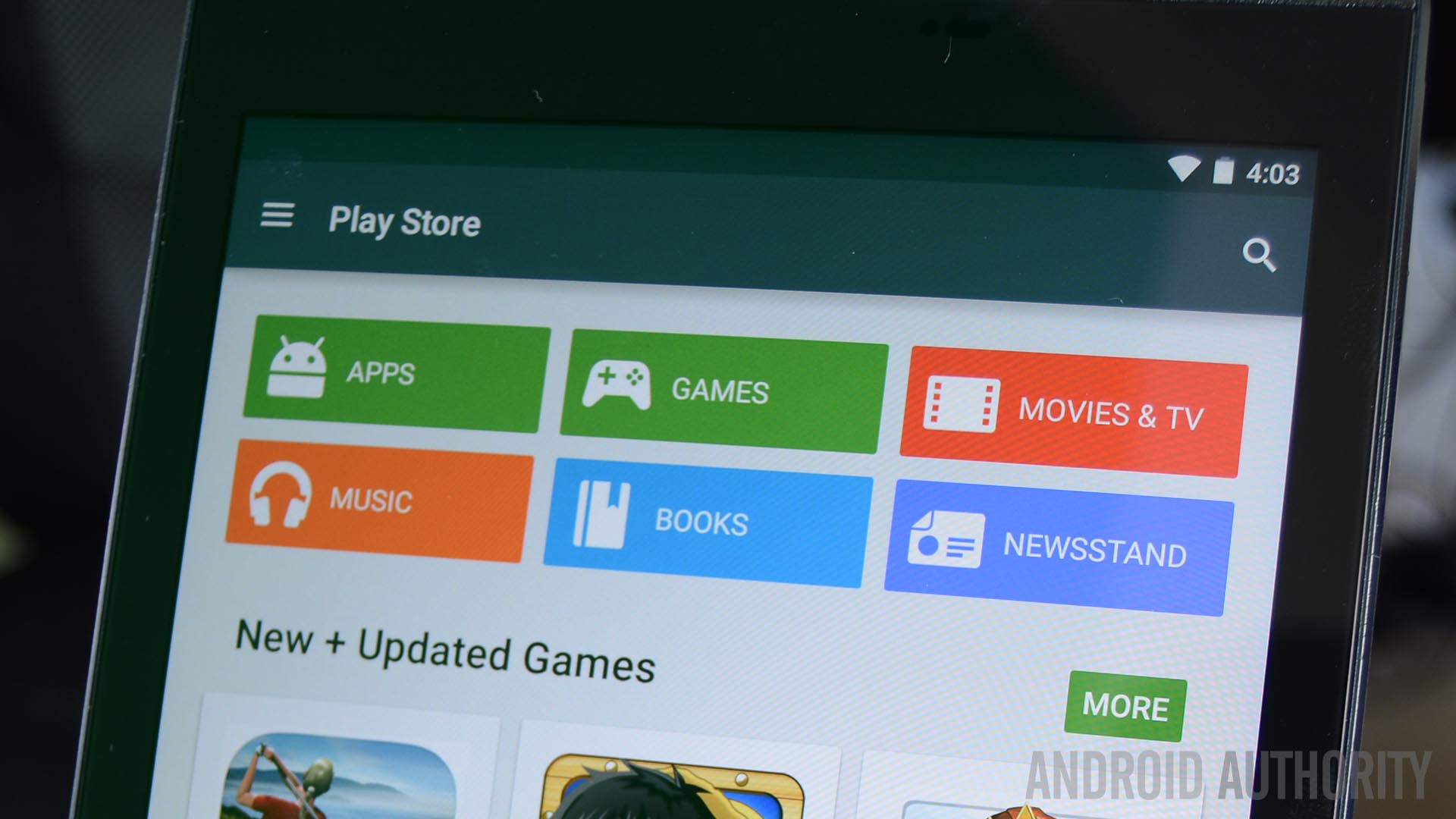
Lack of promotion
We have gone in depth before on just how badly Google Play can be at promoting things. Games and apps are promoted seemingly at random with the only consistency being the top charts.
Popularity and revenue are inextricably linked and these lead to the same pitfalls.
Unfortunately, the top charts are a bit of a self-fulfilling prophecy. They show the most popular apps which, in turn, get even more popular thanks to their existence on the top charts. Generally speaking, users are more inclined to try a game or an app if it’s free, which makes those the most popular. Thus, the games and apps that tend to dominate the charts are free or Freemium.
This eventually spirals all back into the same conundrum we saw when we discussed money. Popularity and revenue are inextricably linked and obtaining both leads to the same pitfalls. Either developers create Freemium games that adhere to what’s popular in Google Play or stick to the platform where they’re already popular. With popularity comes exposure and all of those things eventually lead to revenue.

Hardware
Perhaps the most complicated issue that big-name video game developers face are the devices they’re developing on. Mobile devices come in all shapes and sizes but predominately share one integral feature. They’re all touch screen devices. This has caused its own unique wave of challenges.
First and foremost is the lack of physical feedback. “Twitch” genres such as platformers, first-person shooters, adventure games, and others often require delicate and precise movements and actions on the part of the player. Touch screens lack the physical feedback gamers can get from a controller or keyboard with physical buttons, which makes these delicate movements clumsy and frustrating.
Developing games on a touch screen has its own unique set of challenges.
Hardware vendors have attempted to mitigate this problem in a number of ways. Years back, Sony had the Sony Ericsson Xperia Play which had a built-in controller pad. NVIDIA built the Shield which also came with a built-in controller. The NVIDIA Shield Tablet has its own controller. Couple that with controller vendors such as MOGA, and you have a small arsenal of controllers to help alleviate the problem.
The only problems are that sales and mainstream adoption have been slow. Mobile phones are popular and special because they can be carried anywhere in a pocket. The same can’t be said for bulky controllers. They also tend to be expensive and support for games tends to be sparse. When you mix it all together, you find an ecosystem that could use some massive improvement.
Many of the more popular game genres can't catch a foothold thanks to hardware constraints.
With all of that being said, there are some genres that have managed to thrive. Racing games have adopted the “tilt steering” mechanic which has been wildly successful. RPGs, jRPGs, strategy games, tap/swipe-to-play games, puzzle games, and simulation games have all found a warm welcome thanks to their simple control needs.
It’s not a problem for all games and game developers, but many of the more popular genres still can’t gain a decent foothold thanks to hardware constraints.
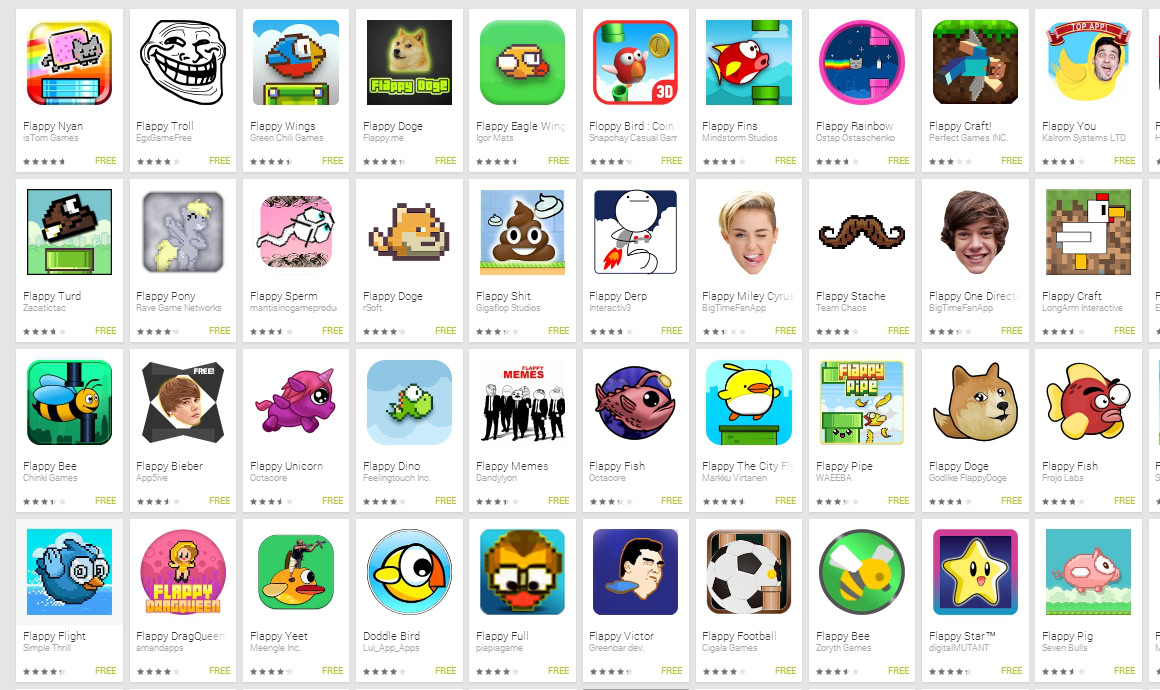
Over-saturation
Simply put, there are a ton of mobile games out there. The exact number is hard to pin down because more are coming out every day. However, if you look at this chart you can see that right around 10,000 games are submitted every single month on iOS alone and we imagine the numbers are comparable on Android. That’s just over 300 per day and about 120,000 per year.
What comes next is truly a philosophical debate. On one hand, most app stores treat every developer equally. Final Fantasy is put right next to Doom & Destiny, while Call of Duty is put right next to Dead Trigger. The big fish are sat right next to the small fish and it’s every person for him/herself. That’s kind of magical in a way because you can see Fallout Shelter -a title from an illustrious series of games from a well-known developer- right next to FallenSouls – Sapphire War from jin boli, a completely unknown developer. There seems to be no preferential treatment which puts everyone on an even playing field which is actually really cool.
On the other hand, big developers are used to receiving at least some preferential treatment. On console and PC, the big name games are used to help promote the platform. XBox, PC, PlayStation, and even Nintendo will promote the big name titles to show people that each platform has those games. That gives big name developers a bit of a revenue boost and in return, the platforms get a little extra boost by giving them flagship titles to promote. Unfortunately, this shuns indie developers a little bit.
Whether or not mobile app stores should adopt the practices of PC and consoles is subject to debate but the bottom line is that large developers don’t have the pull they have in the PC and console markets and have to duke it out with literally every other mobile game developer. There are a ton of mobile game developers releasing a ridiculous number of games and some bigger names may be worried about getting lost in the noise.
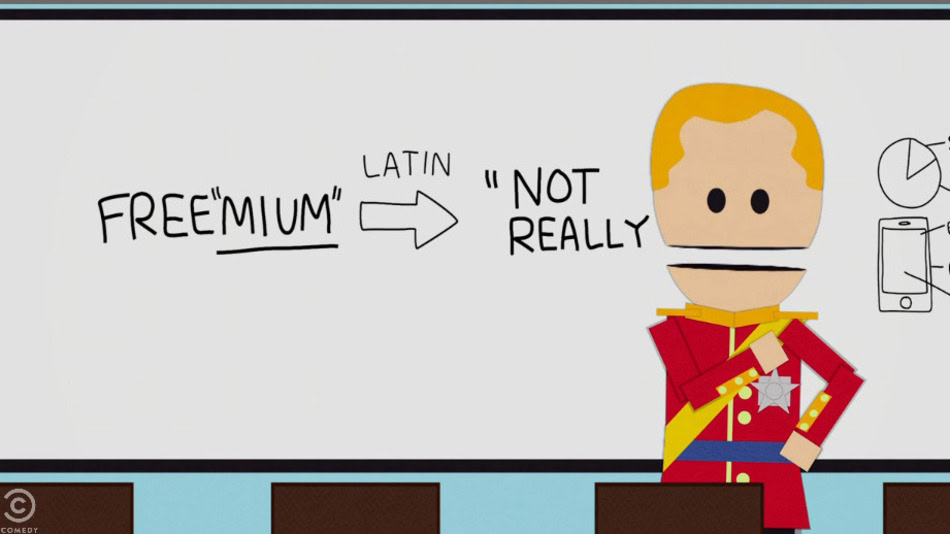
The culture
The culture around mobile gaming is unique because there really isn’t a culture around it. The idea of a “hardcore mobile gamer” isn’t something that gets thrown around all that often. This can be troublesome for large developers because they’re entering into an environment where they may or may not get any traction. It’s like going to a house party where you don’t know anyone expecting to make a new best friend.
It also doesn’t help that what little mobile culture exists is generally mocked by “real” gamers. The typical experience is explained the same way. Someone downloads a ton of Freemium or cheap games and then bases the entire atmosphere based on that experience. Among gamers, the attitude isn’t much better with comments that more or less state that casual gaming isn’t “real” gaming for various, often stupid reasons.
It has become cool to hate Freemium games.
This kind of vitriol may not figure heavily into things like marketing and revenue strategies, but we’ve seen developers and players alike express distaste for the Freemium model time and time again for years. It’s become so cool to hate freemium games which is not good news for developers trying to make money using that model.
The culture around mobile apps in general isn’t very helpful either. For every person that openly states that they’d pay for a game, there seems to be another one that simply won’t pay that much for an app or a game on a smartphone for some personal, totally arbitrary reason. Behind them, there seems to be ten more people who don’t say a word and just go pirate the game somewhere. Above them all is a community of gamers that shuns their very existence. It’s a giant mess and one that likely won’t get worked out for some time.
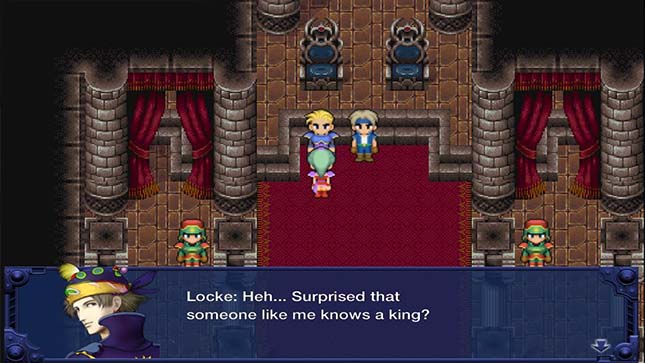
Don’t forget the studios that are taking it seriously
We’ve gone through and discussed many reasons why a lot of big developers don’t take mobile gaming seriously. However, to state that no big developers take the platform seriously is also certainly not true. There are developers out there right now trying to turn this culture around and create a library of awesome games for people.
The list is quite long and includes studios such as Double Fine, Square Enix, Rockstar Games, SEGA, Bethesda, EA, Mojang, Disney, and many others. These have brought us a ton of great, long, solid games such as Grand Theft Auto, Final Fantasy, Minecraft, and many more.
If you don't mind doing a little digging, you can find some big name titles that refuse to follow the Freemium model.
On top of those, you have studios that are porting classic titles to mobile. Developers Beamdog have done Baldur’s Gate, Baldur’s Gate II, and Icewind Dale while Aspyr Media brought us Star Wars: Knights of the New Republic. The list goes on and on of smaller developers that have ported huge titles to mobile for our enjoyment.
And then finally you have the developers who have become household names on mobile. Rovio, Gameloft, ustwo, Supercell, Glu, and others. Facebook giants such as Zynga have also created quite a presence on mobile.
The bad news is that many of these game studios are either buried under the frenzy of viral games or freemium titles or engaging in the freemium wars themselves. The good news is that if you have some patience and don’t mind doing a little digging, you can find some big name games that refuse to follow the freemium model and try to pave the way for more big name developers to follow. Good games on Android do, in fact, exist. It’s just a matter of finding them.
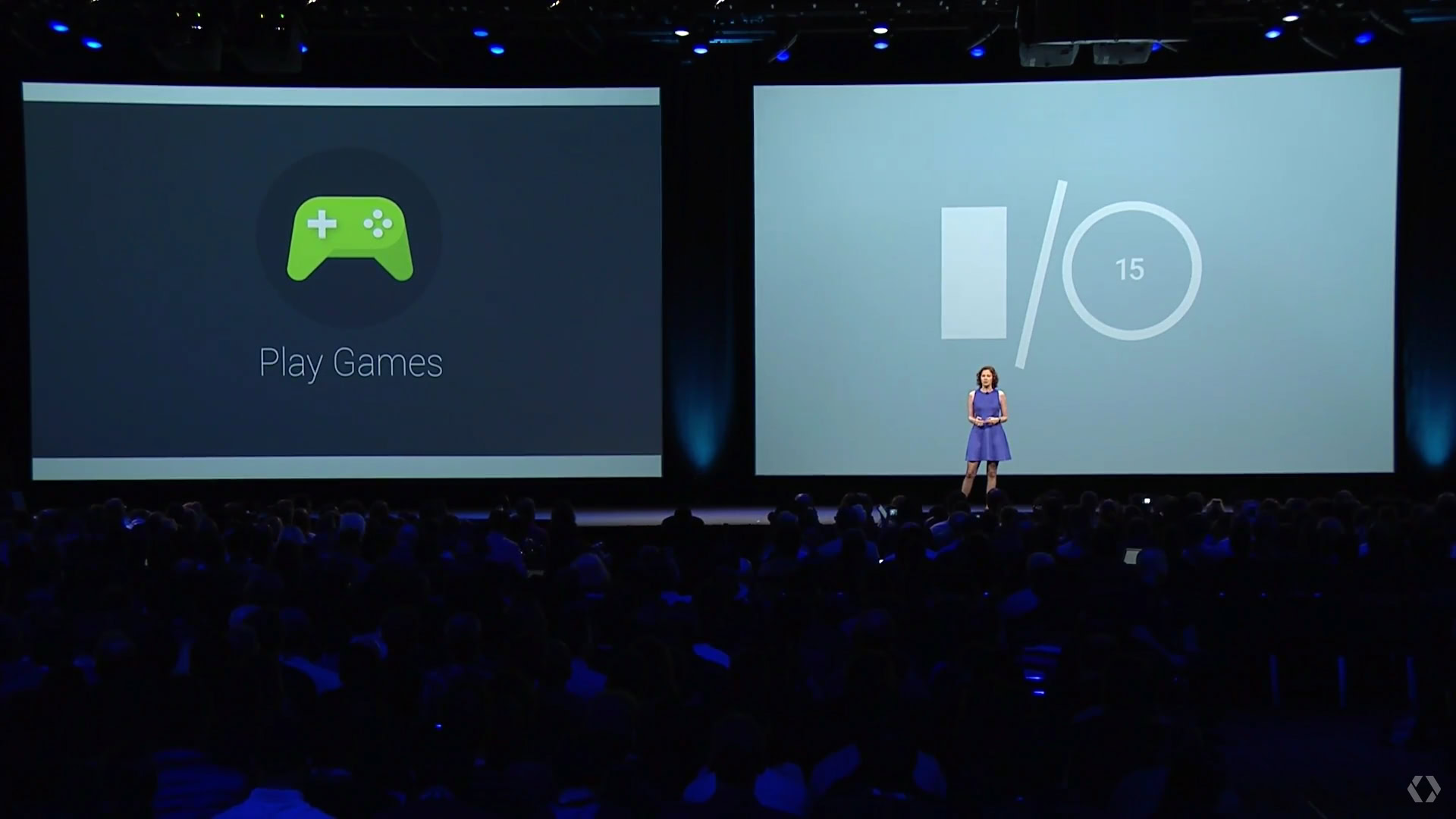
Wrap up
Here’s the thing folks, mobile gaming will be a respected platform someday. Every major revolution in gaming was met with scoffs and doubt at first before things turned around. In the early 1980’s, there was a time when console gaming was considered dead and now it’s one of the most robust gaming platforms ever. It will take time and these quirks will get ironed out. It’s not a question of if, it’s a question of when.